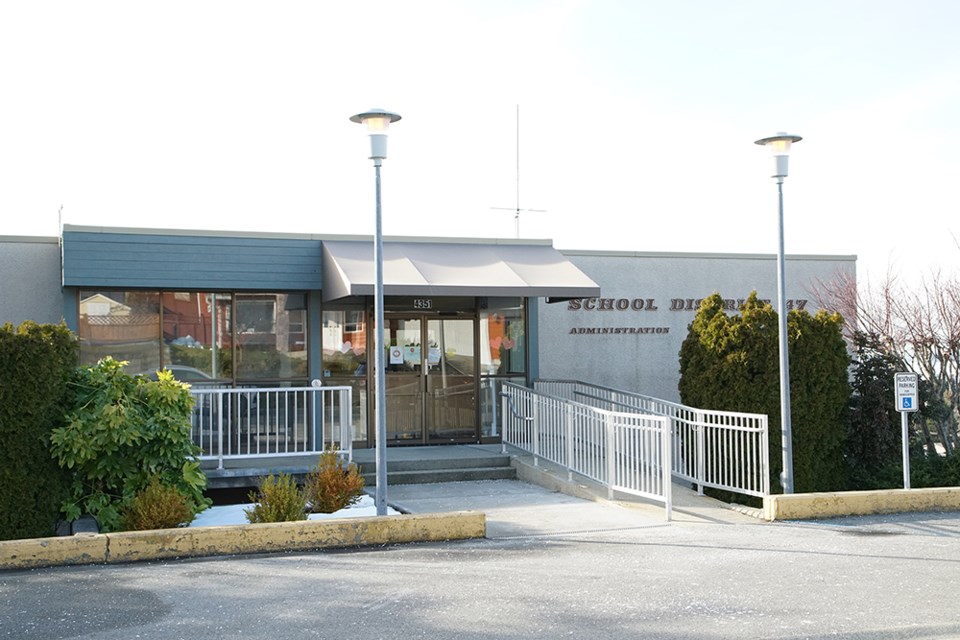School District 47 board of education chairperson Dale Lawson delivered a remembrance of the 215 children discovered in an unmarked, undocumented burial site at a former Kamloops residential school during her remarks at the Powell River Board of Education meeting on June 9.
Lawson said June is typically a time when milestones and accomplishments are celebrated, such as moving up a grade level, transitions to high school, graduation and the beginning of summer break.
“This year, June begins with a heaviness and a heartbreaking reminder of our collective responsibility to drive meaningful change forward,” said Lawson. “We have reached out to acknowledge and provide sympathies and condolences to the Tk'emlúps te Secwépemc and our own partners in the Tla’amin Nation and all those affected by the horrific finding of children’s remains at the residential school in Kamloops.”
Lawson said that Myrna McCallum, host of a trauma-informed lawyer podcast, a Métis-Cree former prosecutor and residential school adjudicator, delivered a poignant keynote presentation to staff during a recent professional development day. She said this session was designed to share trauma-informed strategies and focus on the importance of empathy, safety and connection.
“Myrna reminded us that the recent discovery of the remains of 215 children in Kamloops is something we have always known,” said Lawson. “This is what indigenous people have been sharing for years; [McCallum] touched on the importance of making space for this knowledge.”
Lawson said McCallum suggested each person should be asking themselves how they are coping and what they are thinking about with what is now known about the indigenous experience.
“Trauma-informed practice is listening, it is learning and it takes courage,” said Lawson. “Each of us needs to pause and reflect on the enormous loss and trauma residential schools brought to indigenous communities and families across Canada.”
Lawson said the truth is that the history is ugly, the reconciliation journey is messy, uncomfortable, terribly painful, and different for each person.
“As statues topple and people struggle to process their knowledge and make sense of their truth, we know none of us can change history, but we will educate children with the truth,” said Lawson. “We are proud of our students and community who have rallied with various events and acknowledgments. It is important to recognize the role that the education system has on the path of truth and reconciliation as we grieve with, support, and understand our friends, neighbours, and their respective journeys.
“We will continue to embed truth and reconciliation in our teaching and in our school cultures as we acknowledge and appreciate the Tla’amin people and the lands we have the privilege to reside on.”




